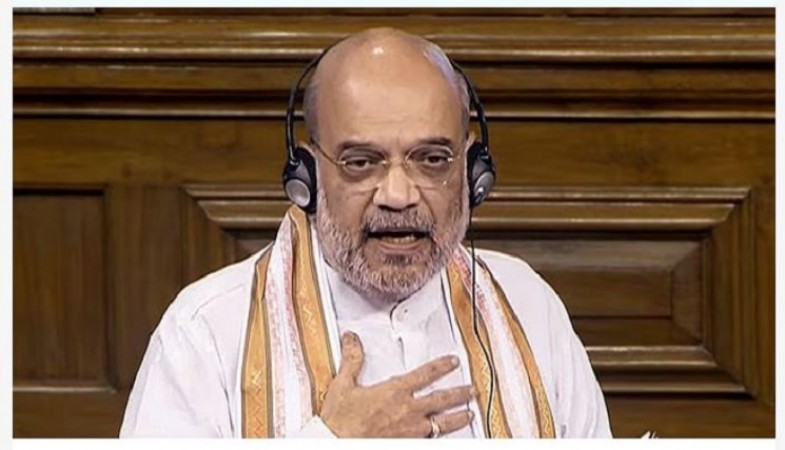
NEW DELHI: The Bharatiya Nyaya Sanhita Amendment Bill has been introduced by Union Home Minister Amit Shah in Parliament with the intention of fortifying legal measures against sexual offenses. This move seeks to replace the Indian Penal Code (IPC) and is founded upon recommendations originating from the initial Law Commission led by Thomas Babington Macaulay.
Originating in 1862 across the British India Presidencies, the IPC's jurisdiction didn't extend to princely states, each maintaining their distinct judicial systems. The proposed Bharatiya Nyaya Sanhita Amendment Bill seeks to streamline and modernize the IPC. Presently comprised of 511 sections, the bill aims to simplify the code, condensing it to 356 sections.
The bill's objectives encompass enhancing legal procedures and removing obsolete language, thereby expediting legal proceedings and ensuring more prompt delivery of justice. This legislative proposal introduces 8 new sections while nullifying 22 existing ones, discarding terms from the colonial era and emphasizing the rights of citizens.
Concurrently, three legislative bills have been presented with the aim of transforming the justice system and eliminating vestiges of colonial-era laws. These bills propose a thorough overhaul of pivotal legal statutes that have long drawn criticism for their intricacy, protracted processes, and prejudicial treatment against socio-economically marginalized groups.
Despite recognizing new offenses and delineating fresh terminologies, there's ongoing debate regarding their efficacy. "A notable inclusion in the proposed Bill is Section 69, which introduces 'Sexual Intercourse by employing deceitful means, etc.,' encompassing instances such as false promises of marriage, employment, promotion, or using a false identity," remarked Advocate Anant Malik. This particular offense carries a punishment of imprisonment that can extend to 10 years along with a fine.
"The proposed bill mandates that inquiries and trials concerning sexual offenses be conducted in camera, enhancing conviction rates in such cases, ensuring justice for victims, and augmenting the accountability of law enforcement and the judiciary," elucidated Rudra Vikram Singh, an Advocate. He also noted that investigations related to sexual offenses and the Protection of Children from Sexual Offences (POCSO) Act should conclude within 60 days from the officer-in-charge's initial recording of information. However, the Criminal Law Amendment Act (2018) by the Government of India already stipulates a two-month limit for investigating and filing charge sheets in rape cases, as well as completing trials.
These changes are poised to address previously overlooked or unaddressed dimensions. "Furthermore, gang rape of a minor will now attract life imprisonment or the death penalty. Previous distinctions between sections based on the age of the victim ('under 16 years' and 'under 12 years') have been eradicated by the Bharatiya Nyaya Sanhita, now framing the new section as 'under 18 years of age,'" conveyed Malik.
The legislature, exercising its authority, has sought to establish a deterrent effect. Nevertheless, the efficacy of any law is a collective endeavor involving the three pillars of governance and law enforcement: the Legislature, the Executive, and the Judiciary. "The written law marks just the inception; the cascading impact of change relies heavily on procedural laws like the Code of Criminal Procedure, now encompassed in the Bharatiya Nagarik Suraksha Sanhita, as well as improved and efficient policing," observed Malik.
Historically, perpetrators have exploited response times and the prolonged court process. They have often been released on bail and resumed their normal lives. With the Bharatiya Nagarik Suraksha Sanhita, stringent timelines for investigation and adjudication have been set.
"Ascertaining the deterrent impact remains speculative. However, Parliament has translated the notion into law, reflecting a renewed spirit," Malik concluded.
FM Sitharaman Introduces CGST Amendment Bill In Lok Sabha
Mandaviya to Introduce 2023 Pharmacy Amendment Bill in Rajya Sabha
Rajya Sabha Scheduled to Review Repealing and Amending Bill, 2023